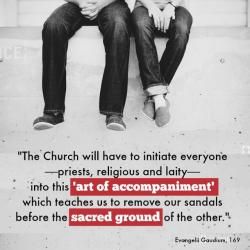The Making Disciples Today Blog has reflections to help you grow in your journey of missionary discipleship, reviews on recommended Catholic evangelization resources, and practical insight on how to evangelize in your daily life.
- Details
- Written by Connie Mayta
I have been wanting to read Dante Alighieri’s Divine Comedy for some time, but have always been too busy to begin. However, after learning of Pope Francis’ high valuation of the poem, I knew that I could no longer delay.
Through his writings, Dante, is a man who invites us to regain the path of our human journey and the hope to once again see the bright horizon where shines the full dignity of the human person.
Happily, I have found the poem to be much more understandable and enlightening than I had envisioned. Despite its Medieval nature, the poem ignites the deadened imagination and reminds the reader of the undeniable human desire for God.
Dante’s Divine Comedy begins with Inferno, which describes the principle character’s journey through hell. I began Inferno near the beginning of Lent and have found it to be an excellent aide to Lenten preparations for confession. Journeying through the various rings of hell, and the corresponding human sins, invites the reader to make an interior journey into the depth of one’s own soul.
Dante’s punishments are carefully crafted to reflect the underlying nature of unholy human behaviors. The vivid images compel the reader to determine if one’s current state of being corresponds to the state of the punished sinners.
For example, Dante’s pilgrim encounters a group of souls who lived their life with no real purpose. They were too cowardly, or too lazy, to devote themselves completely to God or even to adamantly resist Him. As the pilgrim watches, he sees a blank banner go by:
- Details
- Written by Kristin Bird
Did you know that Groundhog Day is a direct descendant of one of the most ancient feasts of the Church?
- Details
- Written by Connie Mayta
Parenting Lessons in Humility
Of all the great teachers in my life, my most surprising teachers have been my own children. Clearly, they do not help me gain basic knowledge or life skills (I do that for them), but they have opened up for me the path to virtuous living in ways that I could have never foreseen.Caring for my children has provided me with ample schooling in the virtues of patience, kindness and love, to name a few.
However, my children first taught me to practice humility, which was the gateway to desiring to grow in virtue and holiness at all.
- Details
- Written by Kristin Bird
During World Youth Day 2013, Pope Francis issued a challenge to today's church:
“[W]e need a church capable of walking at people’s side, of doing more than simply listening to them; a church that accompanies them on their journey; a church able to make sense of the 'night’ contained in the flight of so many of our brothers and sisters from Jerusalem; a church that realizes that the reasons why people leave also contain reasons why they can eventually return.
But we need to know how to interpret, with courage, the larger picture. Jesus warmed the hearts of the disciples of Emmaus.
It is important to devise and ensure a suitable formation, one which will provide persons able to step into the night without being overcome by the darkness and losing their bearings; able to listen to people’s dreams without being seduced and to share their disappointments without losing hope and becoming bitter; able to sympathize with the brokenness of others without losing their own strength and identity."





